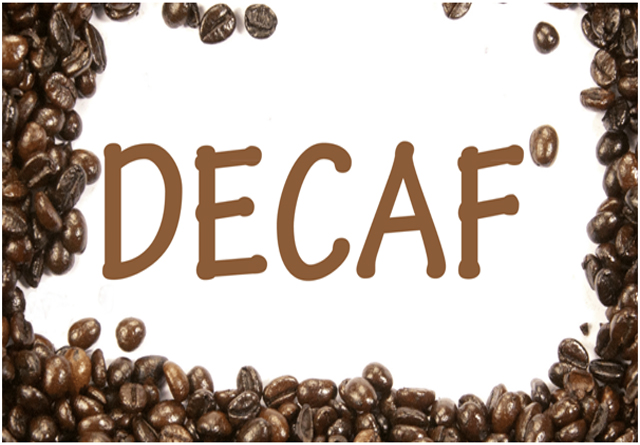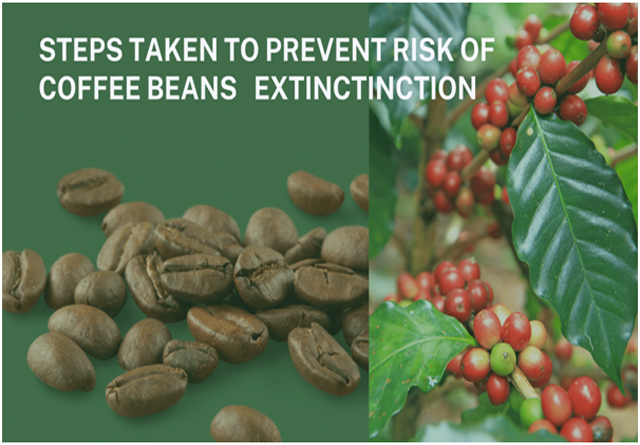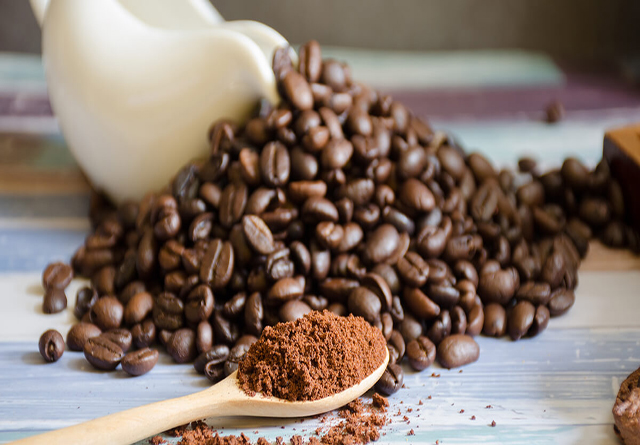Decaf coffee beans are sought after by lovers of espresso. They come in different varieties, and the quality of their blends depends on their genetic makeup. Not all decaf coffee beans contain the same qualities, and the mark of a superb blend is its ability to produce espresso without the caffeine content that many people desire.
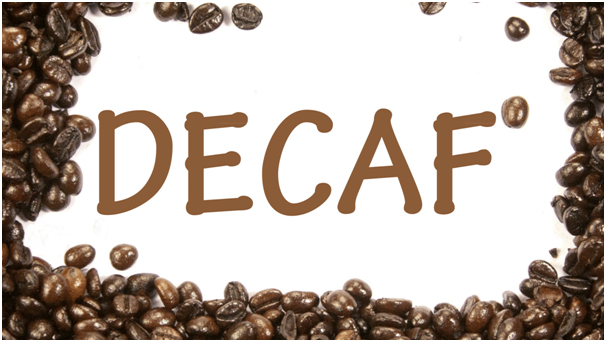
What Is Decaf Coffee And Why Decaf Is Awesome?
Although it sounds like something from an 80s movie, decaf coffee is in fact coffee with no caffeine in it. Caffeine-free coffee is brewed from beans picked when molecular compounds called ‘chlorogenic acids’ are at their peak in the bean. The picking process at harvest time is crucial, because if the beans are not picked at the right level, then the caffeine content will be high.
T here are craft roasters that differentiate their blends of coffee not only by variety but also by caffeine levels. In other words, some blends are considered to be light, medium, or dark roasts, and the higher the caffeine content, the darker the roast.
Decaf coffee beans come in different varieties. The top varieties that are considered the best for espresso coffee are Brasilia, Colombia, Indonesian, Ethiopian, and Kona varieties.
How Does Decaf Coffee Work?
When coffee beans are roasted, a variety of chemicals, including chlorogenic acid and caffeine, are released and emanate from the beans. The chlorogenic acid and caffeine combine and form ‘hydroxichlorogenic acids’. This means that they contain both chlorogenic acid and caffeine.
In order to make decaf coffee, the coffee beans are harvested when they are at their peak for chlorogenic acid content. The beans are then processed to remove the caffeine content. The beans are then roasted to produce a depth of flavor that is the end product.
3 Main Processes For Removing Caffeine :
1) Swiss Water Process
Many decaffeination processes involve soaking the beans in a mixture of water and ethyl acetate, which is a byproduct of the wine industry, for 24 hours. The ethyl acetate and the chlorogenic acid combine and remove caffeine from the beans.
This process creates a lot of waste and brews acidic coffee. The water/ethyl acetate-mix is then discarded and the coffee beans are washed to remove excess ethyl acetate
Round 2 of the Swiss Water Process –
The coffee beans are then dried in a mechanical dryer, which emits carbon monoxide gas. The carbon dioxide is then absorbed into the water, which is collected and recycled. The coffee beans are then roasted again.
2) Carbon Dioxide Process
The beans are ground and soaked in water to remove the caffeine content. The caffeine is then absorbed into a special carbon and then filtered out. The beans are then dried and roasted again.3) Using Supercritical Carbon Dioxide Extraction –
The coffee beans are soaked in water in a special container. The container is then pressurized with carbon dioxide so that the caffeine is extracted. The carbon dioxide is then released and the coffee beans are rinsed in water and roasted again.
3) Chemical Process
The coffee beans are soaked in a petroleum solvent to remove the caffeine content. This is only used in commercial, large-scale operations.
To sum it all up, not all decaf coffee is the same. All decaf coffee is not equal when it comes to espresso. The decaffeination process greatly affects the end product. So when you are shopping for decaf coffee beans, be sure to read the label to see what you are getting.
What Beans Are Used For A Decaf Coffee?
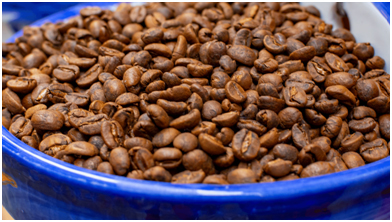
The variety of beans used for decaf coffee depends on the roaster, the climate in which the beans are grown, and the total caffeine content of the beans. Some roasters use Columbian and Mexican beans, and some use Indonesian beans. Some roasters say that Columbian beans are their go-to decaffeinated beans.
You may also like: Is Decaf Worse Than Regular Coffee?
In general, the lighter the roast, the lower the caffeine content and the higher the acidity. Dark roasts have a much higher caffeine content and, therefore, are considered to be “high acid”. Many roasters remove caffeine from darker roasts using either the Swiss Water Process or the chemical process.
The roast of the decaf coffee, its country of origin and whether it is a blend or a single origin are three important factors that draw customers to a certain brand, whether online or retail.
When you choose a great decaf coffee, you want one that has low acidity and a medium body. The hope is that you are purchasing a product that will not only give you a caffeine-free cup of Joe but will also produce a smooth, rich flavor.
For the best decaf coffee, choose 100% Arabica beans that are shade-grown. The shade-grown process allows the beans to ripen slowly, and this allows the beans to produce less acidity.
It’s fun to experiment with different blends and blends of different beans, but keep in mind that darker roasts have more caffeine, so bear that in mind when you search for the best decaf espresso beans.
The best decaf espresso beans will have these characteristics:
Arabica beans – 100% Arabica beans are more expensive than Robusta beans, but they have a higher caffeine content. They also are more flavorful than Robusta beans.
Decaffeinated – The best decaf espresso beans will be decaffeinated using the Swiss Water Process or the chemical process, as these produce less acidity and are more environmentally friendly than using the Supercritical CO2 Extraction method.
Shade grown – The best decaf espresso beans will be shade grown which produces less acidity than non-shade grown beans.
Organically grown – The best decaf espresso beans will be grown organically, as this enhances the flavor, color and aroma of the beans.
Can You Get Decaf Coffee In Whole Beans?
Decaf coffee in whole beans: Yes! Many roasters roast decaf coffee beans just like their caffeinated counterparts. In fact, they roast them darker and at a higher temperature. The difference between the roasted beans and a brewed cup is the oil. The oil the beans release during roasting is removed during the decaffeination process.
Most roasters roast their decaf coffee at a lower temperature than their regular caffeinated blends. They roast them at a lower temperature because decaffeinated beans have lower caffeine content, and the caffeine is absorbed more quickly in darker roasts.
Is There A Naturally Decaffeinated Coffee?
Yes! Just like all the factors that go into making a great cup of decaf, there is also a process for making a natural decaf coffee. But natural decaf coffee is not readily available. If you want a natural decaffeinated coffee, you will need to grow it in your garden.
How To Find The Best Decaf Espresso Beans?
There are many factors to take into consideration before choosing a decaf espresso bean. The country of origin, the roast and the type of decaffeination process are some of the variables to consider.
Remember, just because you buy a decaf espresso bean, it does not mean that it will have less caffeine than your regular coffee. If it has “medium” or “dark” roast on the label, it will have roughly the same amount of caffeine as your regular coffee. You can choose a coffee that is labeled as “light” or “medium” roast as a lower caffeine option, but the caffeine content will still be more than caffeinated coffee.
The whole bean, or “bean to cup” process – Some roasters roast their beans to order, so when you buy whole bean coffee, you are getting freshly roasted coffee. You generally get a better-tasting cup because you are getting the freshest coffee possible.
Does Decaf Coffee Need To Be Packaged Differently?
Decaf coffee definitely needs to be packaged differently from regular coffee. Due to the roasting process, decaf coffee can let off a lot of steam. If not properly packaged, this steam can ruin the product.
The weight of the bag – Generally, a pound of regular coffee has about two to three times more beans than a pound of decaf coffee. This is because there is less caffeine in the beans, so they need up to a 50% larger bag to contain the same amount.
The bag itself – The bag also needs to be bigger, and it needs to be leak-proof because the beans can release a lot of moisture when steaming.
The added cost of packaging – The added cost of the bag and the increase in packaging material costs can be passed onto the customer, influencing the price you pay for the decaf.
The taste of the final product – The roasting process for decaf coffee is different than for regular coffee, so it will affect the taste.
The elimination of caffeine – The decaffeination process can affect the taste of the coffee, and this also will affect the final product.
The transportation – The shipping of coffee is usually kept in refrigerated trucks or warehouses, so the moisture levels are controlled. But during transit, the beans can release moisture. This moisture can affect the taste.
What Is The Healthiest Decaffeinated Coffee?
You know the answer to this question! Decaf coffee is a healthy choice for any caffeine addict, and there are so many options! Keep in mind to look for these characteristics when you look for the best decaf espresso beans: 100% Arabica beans , shade-grown, organic or natural, Swiss Water or chemical process, and medium or light roast.
Decaf coffee is also healthier for you than regular coffee because you are not ingesting all that caffeine.
Most decaf coffees are good options for diabetics, ulcers, or other stomach issues such as acid reflux or GERD.
Since decaffeinated coffee has lower caffeine levels than regular coffee, it is a better alternative for pregnant women and people with heart conditions. Once again, these are just general guidelines. Discuss with your doctor first.
Another good reason to choose decaf coffee is the taste. Many people who do not drink caffeinated coffee, but still want a cup in the morning, will buy decaf coffee. They like the taste of decaffeinated coffee, and they don’t have that jittery feeling that can accompany caffeine consumption.
On the whole, decaffeinated coffee is a healthier option for you than regular coffee.
Coffee has so many wonderful benefits! It can improve memory, enhance mood, help with weight loss, and, of course, has zero calories!
There are so many wonderful options out there, and there are so many factors that will go into choosing the best decaf espresso beans. Have some fun with your morning cup and discover your perfect morning blend!

